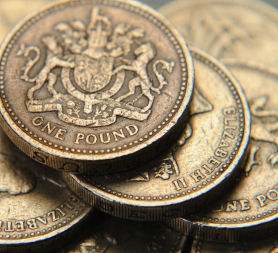FactCheck: 'flat' spending cuts?
Updated on 10 December 2009
Spending, claims Chancellor Alistair Darling, is going to be "pretty much flat" in non-protected public services. But do his sums add up?

The claim
"Spending is going to be pretty much flat... we're assuming for the non-protected services it's going to be pretty much flat."
Alistair Darling, Today programme, 10 December 2009.
The background
With the country running the biggest budget deficit since the Second World War, something has to give.
But there was a glimmer of old New Labour investment in the gloom of yesterday's pre-budget report, with the news that the government would protect spending in some priority areas: schools, hospitals, Sure Start, overseas aid and frontline police numbers.
There's no sign of public spending rising across the board, however. In fact, the total stays pretty flat in real terms from 2011-2014.
Wrapped up in the total spending figures are things like debt interest and benefit payments, over which the government has little control.
If it wants to make cuts, the place to do it is "departmental expenditure" - spending on services, which is what Darling was questioned about this morning.
So if some areas are being protected, what happens to those left out in the cold - like defence, transport, or housing?
This question was put to Chancellor Alistair Darling repeatedly on the radio this morning.
But he repeatedly rowed away from the suggestion of a spending cut, saying instead that spending would be "flat" for non-protected services.
Surely rudimentary fiscal maths suggests something doesn't add up?
The analysis
Over to supremely respected independent think tank the Institute for Fiscal Studies, who filled in some of the numbers in a pre-budget report analysis today.
The IFS took the following assumptions from the PBR:
A real freeze in near-cash NHS spending in 2011-12 and 2012-13.
A 0.7 per cent increase in "frontline" schools spending in the same period (at a cost of an extra £0.7bn in 2012-13).
A real freeze in Sure Start spending in 2011-12 and 2012-13.
Overseas aid spending would increase to a 2013 target of 0.7 per cent of national income.
Although the PBR also promises that frontline police numbers wouldn't be affected, the IFS said how this would be done was unclear and didn't have to equal a spending freeze, and so left it out of the calculations.
So what could this mean for the non-protected departments?
According to the IFS's calculations, non-protected departmental spending would need to be cut by an average of 6.4 per cent a year in 2011-12 and 2012-13 - or £25.5bn in total. That's a cumulative cut of 12.3 per cent.
If the government kept up the protective walls for another year, the total cut over the three years to 2013-14 would be 19.2 per cent. Ow.
Admittedly, they haven't promised to do this - but if we stick only to what they have promised, and drop the non-protected bits back in to the pot in the final year, that would give a 16 per cent cut over the three years.
The government has said it will find billions of pounds worth of efficiency savings (don't call them cuts...), but this doesn't throw off the figures, as any efficiency savings found within the protected areas would not contribute to the required overall cut.
The verdict
Sorry, Darling. Once we factor in spending on the likes of debt interest and benefits, the government's figures show spending on public services will have to be cut between 2011 and 2014.
And as some areas - schools, Sure Start, health and overseas aid - have been saved from the scythe, there's no way spending in other non-protected departments can stay "flat".
The chancellor has yet to spell out exactly where the cuts will go, but non-protected areas - the likes of defence, higher education, transport and housing - face average cuts of 16 per cent over three years.
It may be that the government finds a host of "efficiency savings" in these areas which can be made so efficiently and painlessly that frontline services don't feel the squeeze. But given the size of the cuts required, this seems about as likely as enough spare change miraculously turning up down the back of the Gordon Brown's sofa to put the country back into the black.
FactCheck rating: 4.5
How ratings work
Every time a FactCheck article is published we'll give it a rating from zero to five.
The lower end of the scale indicates that the claim in question largerly checks out, while the upper end of the scale suggests misrepresentation, exaggeration, a massaging of statistics and/or language.
In the unlikely event that we award a 5 out of 5, our factcheckers have concluded that the claim under examination has absolutely no basis in fact.
The sources
Pre-budget report 2009
IFS pre-budget report 2009 briefing
Your views
You've read the article, now have your say. We want to know your experiences and your views. We also want to know if there are any claims you want given the FactCheck treatment.
Email factcheck@channel4.com
FactCheck will correct significant errors in a timely manner. Readers should direct their enquiries to the editor at the email address above.





